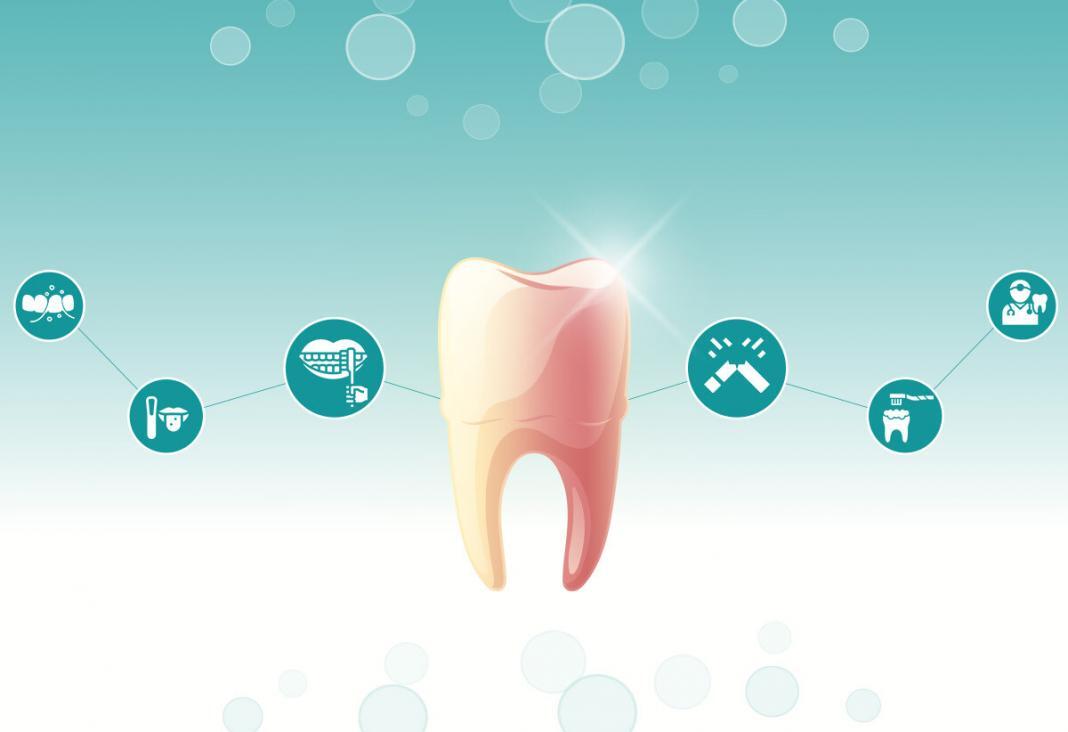Healthy Aging is on everyone’s Wishlist. Imagine how pleasant your life would be if your health allowed you to age with comfort! Healthy teeth can surely help you achieve this goal because if teeth are healthy, your food will get chewed properly and will be digested well. Additionally, your body will get all the required nutrients from the food if digestion is well. Therefore, keeping good oral health is extremely important as you age.
However, nowadays, due to unhealthy lifestyles and additives, dental health has begun to deteriorate even before the onset of aging. If you have poor oral health at a young age, the chances are it may deteriorate further with aging. This article will discuss the ten tips to keep your oral health intact.
#1 – Regular Brushing:
Although it appears the most basic tip, this is the key to getting strong, disease-free teeth. Brushing removes all the germs from the surface of the teeth, and it should be done twice regularly. The saliva released in our mouth by salivary glands protects the teeth from germs and reduces the risk of cavities. But during the night, the quantity of saliva reduces, and it will not be able to protect the teeth efficiently. Therefore, night-time brushing is equally important as daytime brushing. If you have gone to bed without brushing, you are more likely to get dental diseases.
#2- Regular Flossing:
The majority of people do not floss. Many of them do not even know what flossing is. The toothbrush cannot clean the areas between the teeth, called the interdental area. Only flossing can clean these areas. It is done with the help of dental floss, which is a waxed thread. This thread must be passed in between the teeth and removed. All debris and dirt come out with this thread when it is removed from the interdental space. This is how dental floss cleans the hidden parts of the tooth. Flossing should be done at least once a day, and a water flosser can also be used for this purpose.
#3- Using Correct Brushing Technique:
Brushing and flossing regularly will not show results until you are using the correct method for using them. Brushing should not exceed more than two minutes. Your brush should not be hard; instead, it should be soft. In addition, do not take too much toothpaste for brushing. A pea size amount of toothpaste is enough for cleaning properly.
Brushing should not be done in the horizontal direction as it will damage the enamel and result in sensitivity. The correct method includes brushing in the vertical direction for the front teeth and sweeping out the dirt with a brush at an angle of 45 degrees for the back teeth. Do not forget to clean the backside of teeth as these are the most neglected part and accumulate more debris.
#4- Cleaning the Tongue:
If you do not want bad breath as you age, make a habit of cleaning your tongue regularly. A lot of germs get deposited on the tongue and can lead to infection and a foul smell if not cleaned. Mouthwashes can also help in removing bad breath.
#5- Quit the Addictions:
Addictions like smoking, alcohol, and tobacco chewing can make you lose your tooth at a young age. In some studies, it was found that these habits badly affect oral health. Tobacco is known for causing oral cancer, so if you have an addiction of tobacco, you should get your oral cancer screening done at regular intervals. Smoking can make your gums weaker, and alcohol, because of its acidic content, can harm the tooth enamel. Damaged tooth enamel leads to the development of cavities and sensitivity. So, quitting these addictions at an early age will prevent you from their side effects on oral health.
#6- Visiting the Dentist:
Having a dental checkup twice a year will prevent many oral diseases. The best you can do is to get a cleaning or scaling done for your gums after every six months. This will keep your gums tight and healthy and rule out any emerging cavities or other dental issues.
#7- Eating Healthy Food:
Eating foods full of fiber, like fruits and vegetables, taking foods rich in calcium and vitamin- D, and cutting off sugary and sticky food like toffies, chips, etc., will give the teeth and gums a longer life. In addition, rinsing the mouth thoroughly after every meal will prevent any food particles from getting stuck on the tooth’s surface, preventing cavities and malodor.
#8- Treat Dry Mouth (Xerostomia):
Elderly people might experience dry mouth as a side effect of some medications. A dry mouth can cause cavities, gum diseases, oral infections, and sensitivity because of the lack of adequate saliva in the mouth. Therefore, it is important to see a dentist if you have a dry mouth. A salivary stimulant may help in increasing the saliva flow.
#9- Keeping good general health:
Diabetes, osteoporosis, kidney disease, cancers, etc., can lead to oral diseases. Diabetes can lead to frequent abscesses and infections in the mouth. Similarly, other systemic diseases can lead to bone loss and badly affect oral health. Cancer treatment also has some adverse effects on the teeth. Usually, after cancer treatment, a patient must undergo dental treatment to rehabilitate damaged teeth. So, maintaining good general health will also maintain good oral health.
#10- Using a Fluoride Toothpaste:
Always check the ingredient section of the toothpaste before using it. The toothpaste should contain 1000 to 1500 parts per million (ppm) of fluoride. Fluoridated toothpaste prevents tooth decay. Therefore, brushing with fluoride toothpaste will reduce the risk of cavities.
Conclusion:
To conclude, aging is a natural process that must occur. Aging affects each part of the body, including oral health. But some measures can be taken to improve dental health with advancing age. If you take very good care of your teeth and gums from the beginning, you will have better outcomes in the advancing years.
You may want to read more,
- Wondering what caused sudden teeth sensitivity? Here are the possible reasons!
- Tips and Tricks For Safeguarding Your Oral Health
- 10 Best Practices of Good Oral Hygiene







